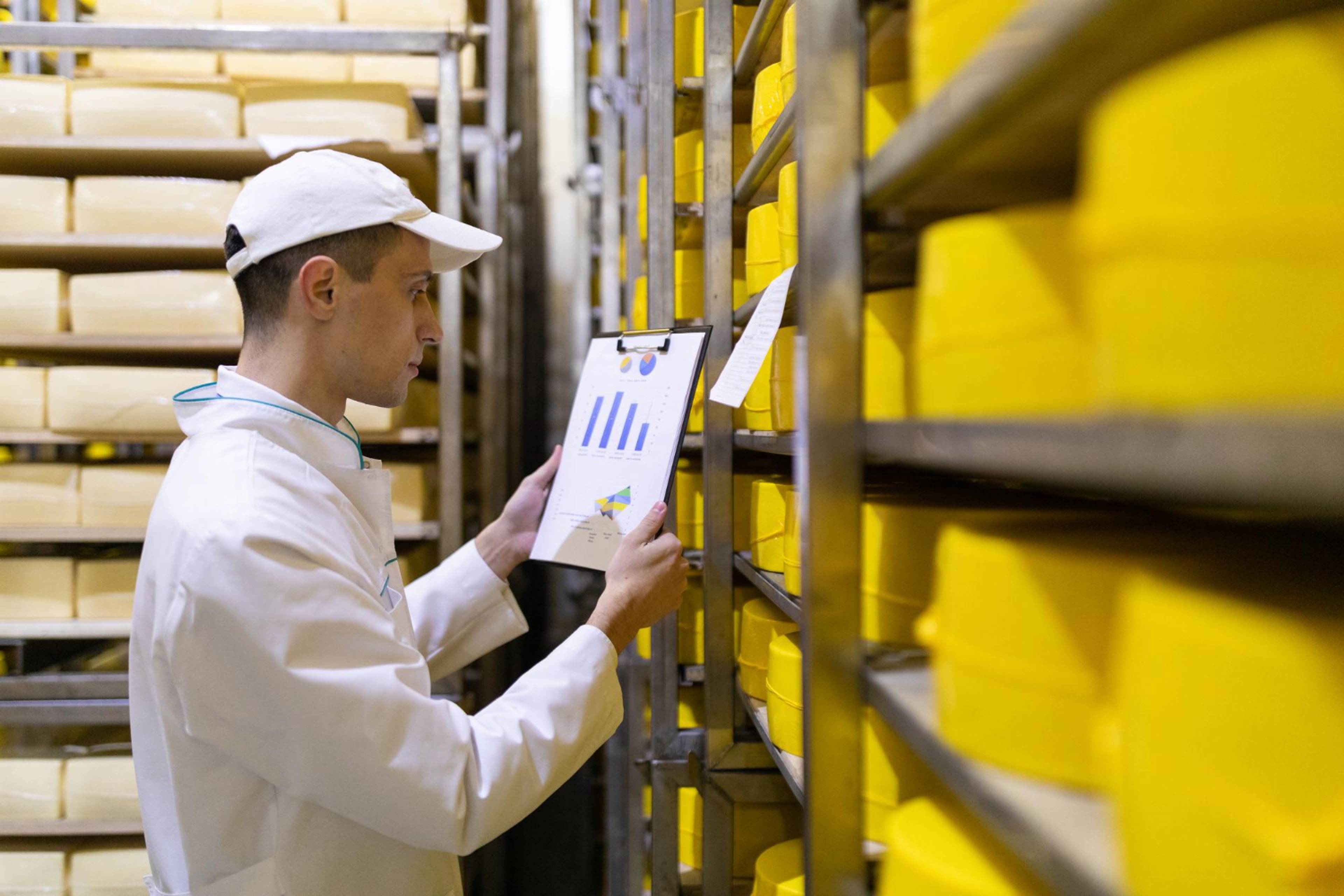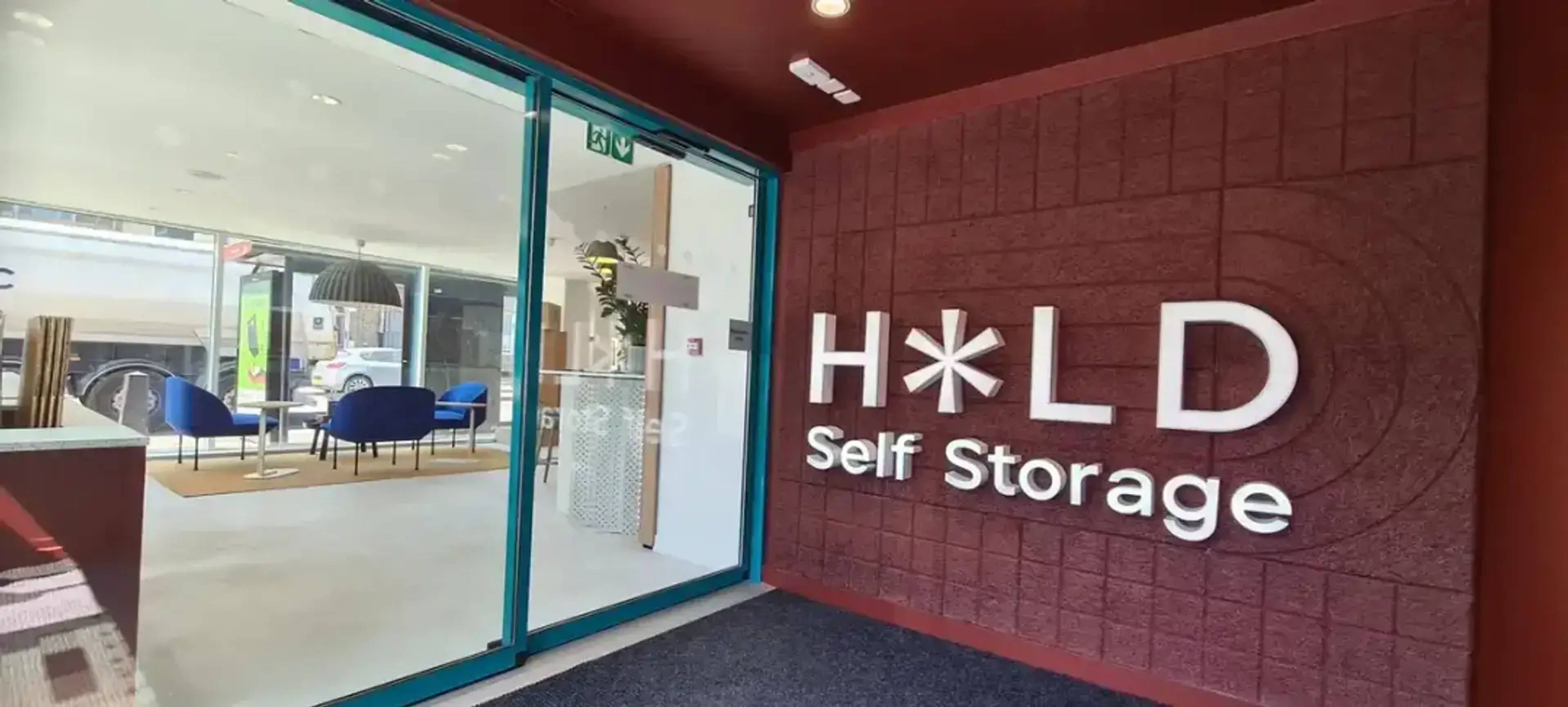Today, self-storage has become more than hiring a space to store documents, possessions, supplies, or equipment. Many people use their rented self storage unit as a workshop. Why? Because it's a smart way to get more space without the high cost of renting traditional office space or expanding your house.
Let's dive in!
Table of contents:
- Understanding the law surrounding UK self storage
- Self storage facility policies
- What are the benefits of using a storage unit as a workshop?
- What are the limitations of using a storage unit as a workshop?
- 7 steps to setup up a workshop in a self storage unit
Understanding the law surrounding UK self storage

If you're considering using your storage unit as a workshop, it's important to understand the legal frameworks. In the UK, this involves understanding specific regulations, insurance requirements, and the policies of individual storage operators.
Key Considerations
Safety and amenities – The type of work you plan to do in the workshop will dictate the specific amenities you need. Not all units come with power outlets, wifi, or proper ventilation. These are critical factors to consider, especially if your workshop requires electricity or if you plan to use volatile chemicals.
Insurance and liability – Ensuring you have the right insurance coverage is critical when using a storage unit as a workshop. This includes liability insurance for any business activities undertaken within the unit and coverage for your tools and materials.
Contract terms and lease agreements – Before signing a lease agreement, review it thoroughly for any clauses related to the use of the unit as a workshop. This includes understanding any restrictions, the potential for lease termination based on certain activities, and additional fees.
Considerations for businesses – If your proposed workshop is an extension of your business, it's worth considering the cost-effectiveness, flexibility, and simplicity of contracts offered by storage facilities.
Now we'll move on to one of the most crucial considerations.
Self storage facility policies

Before transforming your self-storage unit into a workshop, ensure you fully understand the policies of the storage facility. These guidelines ensure the safety, security, and proper use of the space for all customers.
It's important to communicate directly with facility managers to see what's allowed and what isn't. Let's explore common policies and the reasons behind them.
Permissions and restrictions
Most storage providers require you to obtain permission before using a unit as a workshop. This is because certain activities may increase the risk of damage to the property or pose safety hazards.
For example, using power tools, storing flammable liquids, or engaging in activities that produce a lot of noise might be restricted or outright prohibited. Facilities prioritise the safety and comfort of all their customers, so activities that could disrupt this environment are often limited.
Types of work allowed
The nature of your work significantly influences whether you can use a self-storage unit as a workshop. Generally, crafts that are low impact and don't require the use of hazardous materials are more likely to be permitted.
This includes activities such as painting, woodworking with hand tools, or assembling crafts. In contrast, activities involving heavy machinery, significant alterations to the space, or the storage and use of hazardous substances are typically not allowed.
Additional costs
Using a storage unit as a workshop may incur additional costs beyond the standard rental fee. This could be due to higher insurance premiums required by the facility to cover the different uses of the space or potential wear and tear.
Additionally, if your workshop requires amenities not typically offered in a standard unit, such as electrical upgrades or internet access, you might be responsible for the cost of these additions.
Security and access
Storage facilities like HOLD have strict security measures in place, including surveillance cameras, secure access gates, and individual locks on each unit. When setting up a workshop, ensure that your activities comply with these security policies.
Access hours might also impact your ability to use the space as desired, as some facilities limit access to business hours, while others may offer 24/7 access.
Cleanliness and maintenance
Maintaining the cleanliness of your unit is typically a condition of use, particularly when using the space as a workshop. Storage facilities expect you to keep your unit in good condition and to avoid activities that might cause damage to the flooring, walls, or ceiling. Regular inspections might be conducted to ensure compliance with these maintenance standards.
What are the benefits of using a storage unit as a workshop?

Cost-effectiveness
One of the primary advantages of utilising self-storage units as workshops is their cost-effectiveness. Renting a self-storage unit can be significantly cheaper than leasing commercial office space or expanding a home workshop.
With self-storage, you only pay for the space you need, avoiding the financial burden of long-term leases or the cost of buying and maintaining additional property. This setup is particularly beneficial for small businesses or individuals on a budget, allowing them to invest more in tools, materials, and other business needs.
Flexibility
Self-storage offers unmatched flexibility. You can choose from a range of unit sizes to fit your specific needs, whether it's a small space for storing documents and materials or a larger area for handling furniture projects.
This adaptability extends to rental agreements too; most self-storage facilities offer month-to-month leasing, making it easy to upsize or downsize based on your current project requirements. This is ideal for businesses that have seasonal peaks in demand, providing the perfect solution for storing stock or equipment when not in use.
Security
Security is a top priority for storage facilities, which typically feature gated access, 24/7 surveillance cameras, and individual locks for each unit. This level of security provides peace of mind, knowing that your tools, equipment, and work-in-progress projects are kept safe.
Additionally, some facilities offer climate-controlled units, ensuring sensitive materials are protected from extreme temperatures and humidity. This secure environment is crucial for storing valuable business assets and personal belongings, making self-storage units a highly recommended option for anyone needing a workshop space.
Convenience
Many storage facilities offer convenient features such as drive-up access, making it easier to load and unload heavy equipment or materials. This convenience saves time and effort, especially for businesses that frequently move items in and out of their workshop space.
Professional environment
Using a self-storage unit as a workshop can also provide a more professional environment for small businesses. It allows for a dedicated space to work on projects, store stock, and even meet with customers, separate from personal living areas.
Community
Some self-storage facilities foster a community of like-minded individuals and businesses. This can provide networking opportunities and the chance to share ideas and resources with others who are also using storage units creatively.
Incorporating a self-storage unit into your business operations or personal projects can offer a multitude of benefits. From cost savings and flexibility to security and added convenience, the value of considering a self-storage unit as a workshop space is clear.
Whether for storing tools, working on next projects, or expanding your business, self-storage provides a practical, secure, and flexible solution.
What are the limitations of using a storage unit as a workshop?

Right, now we've sung the praises, let's look at some of the potential drawbacks. Before using self-storage units as workshops, assess the practical aspects and constraints that could shape your operations. These elements can significantly influence the feasibility and efficiency of your workspace. Let's dive in.
Space Limitations
While self-storage units offer a variety of sizes, from compact units to expansive ones, space limitations are a critical factor to consider. The unit size must align with your needs, providing enough room for both storing materials and allowing for a comfortable workspace.
For projects requiring large tools or equipment, there needs to be enough storage space for operation and safe movement. This limitation might affect the type of work you can undertake, particularly for large-scale projects or those requiring significant layout or assembly space.
Utilities and amenities
Another crucial consideration is the availability of necessary utilities and amenities. Many self-storage units lack water access, high-power electricity, or suitable ventilation systems. This lack can impact tasks requiring specific electrical equipment, the use of water, or the need for proper ventilation—such as woodworking, painting, or any work involving chemicals or materials that emit fumes.
Ensure there is adequate ventilation
Ventilation is a significant factor, especially for activities that generate dust, fumes, or require the use of flammable materials. The enclosed nature of most self-storage units means that without proper ventilation, there's a risk to both your health and safety.
Activities such as spray painting, welding, or any work that generates hazardous vapors might not be suitable for a standard self-storage unit. It's crucial to ensure that your chosen unit has adequate ventilation or to seek permission from the facility to install temporary ventilation solutions.
Impact on project types
These considerations—space limitations, lack of certain utilities, and inadequate ventilation—naturally limit the types of projects that can be feasibly and safely carried out in a self-storage unit. For example, activities requiring significant power consumption, water use, or those that produce considerable noise might not be suitable.
7 steps to setup up a workshop in a self storage unit

Creating a workshop in a self-storage unit requires thoughtful planning and organisation. Here are several actionable tips to ensure your setup is both efficient and safe.
1. Maximise space
- Install shelving and storage solutions – Use vertical space to your advantage by installing shelves and cabinets. A well-designed tool cabinet can keep all the tools organised and within easy reach. Consider mobile storage solutions for flexibility.
- Use pegboards for tools – Hanging tools on a shop wall or pegboard saves valuable floor space and keeps essential tools visible and accessible.
2. Organisation
- Label everything – Labelling drawers, bins, and shelves makes finding and storing items more straightforward. This system is especially helpful for storing car parts, hardware, and smaller items that can easily get lost.
- Organise by project – Keep materials and tools for each project together. This approach not only helps with organisation but also saves time when switching between tasks.
3. Lighting
- Ensure proper lighting – Good lighting is critical in a workshop. Install bright, overhead lights to illuminate the space evenly. Portable work lights are also beneficial for focusing light on specific areas or projects.
4. Safety precautions
- Fire safety – Always have a fire extinguisher on hand, especially if you're working with flammable liquids or materials. Be aware of the storage unit's policies on such materials to avoid any violations.
- Ventilation – If your work involves fumes or dust, ensure your workspace has adequate ventilation. While most storage units may not have built-in ventilation systems, positioning a fan near an open door or using a portable air filter can help mitigate the issue.
- First aid kit – Keep a well-stocked first aid kit readily available for any minor injuries that may occur during work.
5. Efficiency
- Plan your layout – Before moving in, sketch a layout of your storage unit to optimise the space. Consider the flow of work and position equipment and work surfaces for efficiency.
- Flexible work surfaces – Utilise workbenches that can be folded or moved as needed to create more space or extra space for larger projects. Work surfaces should be durable and adjustable where possible.
6. Electrical needs
- Manage your power supply – Since power tools and other equipment may require electricity, understand the electrical capabilities of your unit. If the unit lacks outlets, portable battery packs or extension cords may be necessary. Always ensure any electrical setup is safe and complies with the facility's rules.
7. Security measures
- Secure your unit – Even in a secure facility, take steps to protect your valuable tools and equipment. Use high-quality locks and consider installing a small, battery-operated alarm system.
By following these tips, you can set up an efficient and effective workshop in a self-storage unit, making the most of the space while adhering to the facility's policies and ensuring your safety.
Always research before using storage as a workshop
To wrap up, as we mentioned at the beginning of this article, it is legal (broadly speaking) to make a storage unit your workspace. However, always check the facility policies thoroughly, and ensure the space is suitable for your needs.
Using a HOLD storage unit as a workshop

At HOLD, we don't only specialise in tool and stock storage (respecting the needs of business and work) we let our customers set up workshops too.
Contact us today to learn more or get your exclusive offer.
Frequently Asked Questions
Will HOLD let me use my storage unit as a workshop?
Absolutely! As long as you adhere to our terms and conditions, you can start right away.
What size units are available at HOLD?
We offer a wide range of sizes, from small 5’x5’ units to larger spaces, depending on your storage needs.
What is climate-secure storage?
Our climate-secure units maintain temperatures between 65 and 75 degrees year-round to protect your items from temperature fluctuations.
Do I need a reservation?
Reservations are recommended to secure a specific unit size but walk-ins are also welcome. Book on the phone or online for an exclusive offer
Can I move items between units?
Yes, you can switch units depending on availability and size requirements.
Can I pay my bill online?
Online payment options are available for convenience, including setting up recurring payments.


